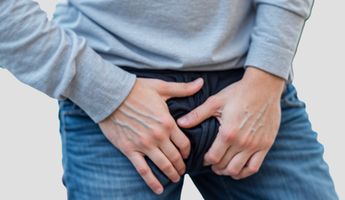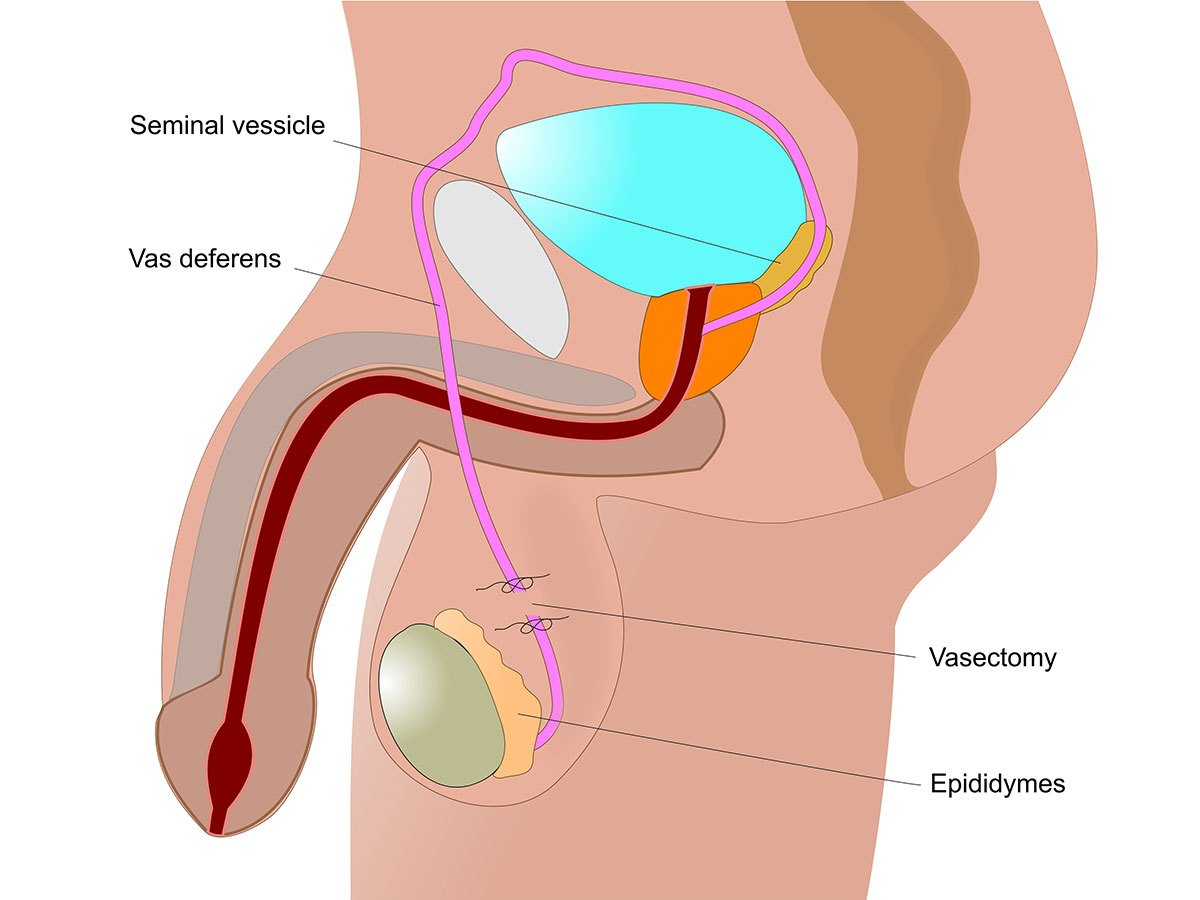Vasectomy in Austria
Search and Compare the Best Clinics and Doctors at the Lowest Prices for Vasectomy in Austria

Find the best clinics for Vasectomy in Austria
No pricing info available
Russian Federation offers the best prices Worldwide
Price: $ 275
From 62 verified reviews
Johanna Santner, 26 June 2020
I was always well looked after. Helped me a lot !!
- Home
- Austria
WHY US?
At Medijump, we're making medical easy. You can search, compare, discuss, and book your medical all in one place. We open the door to the best medical providers worldwide, saving you time and energy along the way, and it's all for FREE, no hidden fees, and no price markups guaranteed. So what are you waiting for?

Free

Best Price

Widest Selection

Risk-Free
What you need to know about Vasectomy in Austria

Vasectomy, sometimes referred to as male sterilization, is a form of birth control for men to prevent pregnancy. The procedure blocks the supply of sperm to the semen when men ejaculate. Men who undergo this procedure can still experience orgasm and ejaculate.
It acts as a form of permanent birth control, preventing sperm from reaching the semen, thus eliminating the chance of pregnancy.
What does a Vasectomy Procedure Involve?
Vasectomy is performed under local anesthetic, meaning that you will be awake but you will not feel anything. Your doctor will remove and seal the tubes (vas deferens) that carry sperm from your testicles. Once the tubes have been cut, your sperm cannot reach your semen or leave your body anymore.
How Long Should I Stay in Austria for a Vasectomy Procedure?
You can leave the hospital on the same day of the procedure, but you will need to stay in Austria for at least 2 to 4 days. During your stay, you will need to attend hospital check-ups. If your doctor does not use dissolving stitches, removal of stitches will take place during the check-up.
What's the Recovery Time for Vasectomy Procedures in Austria?
Rest for at least 24 hours after the procedure and avoid physical activities, such as exercise and sexual intercourse, for around a week. You should be able to go back to work in 3-5 days.
What sort of Aftercare is Required for Vasectomy Procedures in Austria?
There is no special diet you need to follow and do not have unprotected sex until you have ejaculated at least 15 to 20 times. Once you have had 15 to 20 ejaculations, you can undergo a follow-up test with your local doctor to examine if your semen is free of sperm.
What's the Success Rate of Vasectomy Procedures in Austria?
Vasectomy is almost 100% effective. Unsuccessful vasectomy happens when the tubes re-join, but it is very rare. Risks and side effects are very uncommon, but if they do happen, they usually include infection, inflammation, bruising, and swelling.
Are there Alternatives to Vasectomy Procedures in Austria?
There is currently no alternative for male sterilization that is as effective as a vasectomy. The current best alternative for men is to use a condom during sexual activities or to ask the female partner to use birth control.
What Should You Expect Before and After the Procedure
Before the procedure, you need protection to avoid unwanted pregnancy. After the procedure, you no longer need any form of protection as your semen is free of sperm. However, the procedure will not protect you from any sexually transmitted infections.
Whilst the information presented here has been accurately sourced and verified by a medical professional for its accuracy, it is still advised to consult with your doctor before pursuing a medical treatment at one of the listed medical providers
No Time?
Tell us what you're looking for and we'll reachout to the top clinics all at once
Enquire Now

Popular Procedures in Austria
Prices Start From $500

Prices Start From $2,473

Prices Start From $683

Prices Start From $322

Recommended Medical Centers in Austria for Vasectomy

- Interpreter services
- Translation service
- Religious facilities
- Medical records transfer
- Medical travel insurance
- Health insurance coordination
- TV in the room
- Safe in the room
- Phone in the room
- Private rooms for patients available

- Interpreter services
- Translation service
- Religious facilities
- Medical records transfer
- Medical travel insurance
- Health insurance coordination
- TV in the room
- Safe in the room
- Phone in the room
- Private rooms for patients available

- Interpreter services
- Translation service
- Religious facilities
- Medical records transfer
- Medical travel insurance
- Health insurance coordination
- TV in the room
- Safe in the room
- Phone in the room
- Private rooms for patients available

- Interpreter services
- Translation service
- Religious facilities
- Medical records transfer
- Medical travel insurance
- Health insurance coordination
- TV in the room
- Safe in the room
- Phone in the room
- Private rooms for patients available

- Interpreter services
- Translation service
- Religious facilities
- Medical records transfer
- Medical travel insurance
- Health insurance coordination
- TV in the room
- Safe in the room
- Phone in the room
- Private rooms for patients available

- Interpreter services
- Translation service
- Religious facilities
- Medical records transfer
- Medical travel insurance
- Health insurance coordination
- TV in the room
- Safe in the room
- Phone in the room
- Private rooms for patients available

- Interpreter services
- Translation service
- Religious facilities
- Medical records transfer
- Medical travel insurance
- Health insurance coordination
- TV in the room
- Safe in the room
- Phone in the room
- Private rooms for patients available

- Interpreter services
- Translation service
- Religious facilities
- Medical records transfer
- Medical travel insurance
- Health insurance coordination
- TV in the room
- Safe in the room
- Phone in the room
- Private rooms for patients available

- Interpreter services
- Translation service
- Religious facilities
- Medical records transfer
- Medical travel insurance
- Health insurance coordination
- TV in the room
- Safe in the room
- Phone in the room
- Private rooms for patients available

- Interpreter services
- Translation service
- Religious facilities
- Medical records transfer
- Medical travel insurance
- Health insurance coordination
- TV in the room
- Safe in the room
- Phone in the room
- Private rooms for patients available
Vasectomy in and around Austria
Austria is a mountainous landlocked country in south-central Europe. Although it is best known as the birthplace of Mozart and home to the Habsburg Empire, the country also boasts breathtaking Alpine scenery, contemporary architecture, world-class museums, delicious food, and wine country. Austria is also known to have one of the best healthcare systems in the world, making it a popular destination for international medical tourists. Many people, particularly from other European countries and Asia, come to Austria to receive medical care in one of its many internationally acclaimed medical centers, two of which are accredited by JCI. These medical centers feature cutting-edge technology and first-class facilities.
Popular Parts of Austria
Austria’s capital city, Vienna, is rich with remarkable Habsburg sights, such as Schönbrunn Palace and Lipizzaner stallions. It is also home to the Mozart Museum, St. Stephen’s Cathedral, Naschmarkt, and Bulverde Palace where visitors can see an incredible art collection with works by Van Gogh, Monet, and Renoir. Salzburg is another popular city in the country. This city is frequented by fans of Mozart and the “Sound of Music.” It also boasts beautiful Baroque churches, a dramatic castle, and a stunning old town full of winding lanes. Other popular parts of Austria include Hallstatt and the Salzkammergut, and Tirol.
Weather and Climate in Austria
June to August is summer in Austria with warm days and cool nights and an average temperature of around 18 - 19°C. Summer mornings are usually sunny, but thunderstorms can sometimes break out in the afternoon. Winter in Austria, from November to March, can be very cold as the temperatures plummet to an average of -1 to 5°C. Spring and autumn are generally nice and incredibly beautiful.
Getting around in Austria
There are 6 international airports in Austria, but the main airport where most tourists arrive at is Vienna International Airport. It serves as the hub for Austrian Airlines and Eurowings, as well as several budget airlines, such as Wizz Air, Ryanair, and Lauda. This airport connects Austria with many cities in other European countries, North America, Africa, and Asia. Getting around Austria is fairly easy since it's public transport system is fast, efficient, and reaches even remote regions. Internal flights are available, but given the size of the country, it is rarely necessary. The country’s national railway system (ÖBB) is integrated with the Postbus services. Cheaper bust options, such as the Flexibus, are available as well. Inside major cities, an extensive system of light rail, metro, bus, and tramway services are available. Taxis are reliable and relatively affordable.
Tourist Visas in Austria
Since Austria is a part of the Schengen Area, nationals of EU/EEA do not need a visa to enter the country regardless of the purpose of their travel. Citizens of about 62 countries are exempt from a visa to travel to Austria, including the US, Canada, Australia, and South Korea. Unless you are a citizen of these 62 countries, you will need a visa to visit Austria.
Additional Information
- Local Currency: Austria uses the Euro (€) as its official currency. €1 converts to approximately US$1.17.
- Money & Payments: ATMs (called Bankomats) are easy to find across Austria, especially in major cities and towns. Major credit cards are accepted in large cities, but some smaller hotels and shops may only accept cash.
- Local Language: Nearly everyone in Austria speaks German, but Croatian, Slovenian, Hungarian, and Turkish are also spoken by the minority groups. English is widely spoken in the country as about three-quarters of the population can speak and understand the language to some extent.
- Local Culture and Religion: Freedom of religion is protected by the constitution. Around 64% of the population identifies as Roman Catholic. Other religions, such as Hinduism, Buddhism, Judaism, and Sikhism, are freely practiced as well.
- Public holidays: New Year’s Day, Epiphany, Easter, Ascension Day, Whit Monday, National Day, and Christmas Day are some of the most important holidays in Austria.
Popular Searches
- Plastic Surgery in Thailand
- Dental Implants in Thailand
- Hair Transplant in Thailand
- Breast Augmentation Thailand
- Gastric Sleeve in Thailand
- Gender Reassignment Surgery in Thailand
- Laser Hair Removal in Bangkok
- Botox in Bangkok
- Dermatology in Bangkok
- Breast Augmentation in Bangkok
- Coolsculpting in Bangkok
- Veneers in Turkey
- Hair Transplant in Turkey
- Rhinoplasty in Turkey
- Stem Cell Therapy in Mexico
- Rhinoplasty in Mexico
- Liposuction in Mexico
- Coolsculpting in Tijuana
- Rhinoplasty in Korea
- Scar Removal in Korea
- Gastric Sleeve in Turkey
- Bone Marrow Transplant in India
- Invisalign in Malaysia
- Plastic Surgery in the Dominican Republic
- Tummy Tuck in the Dominican Republic
- Plastic and Cosmetic Surgery in Poland
- Rhinoplasty in Poland
- Hair Implant in Poland
- Dental Implants in Poland
- IVF in Turkey
